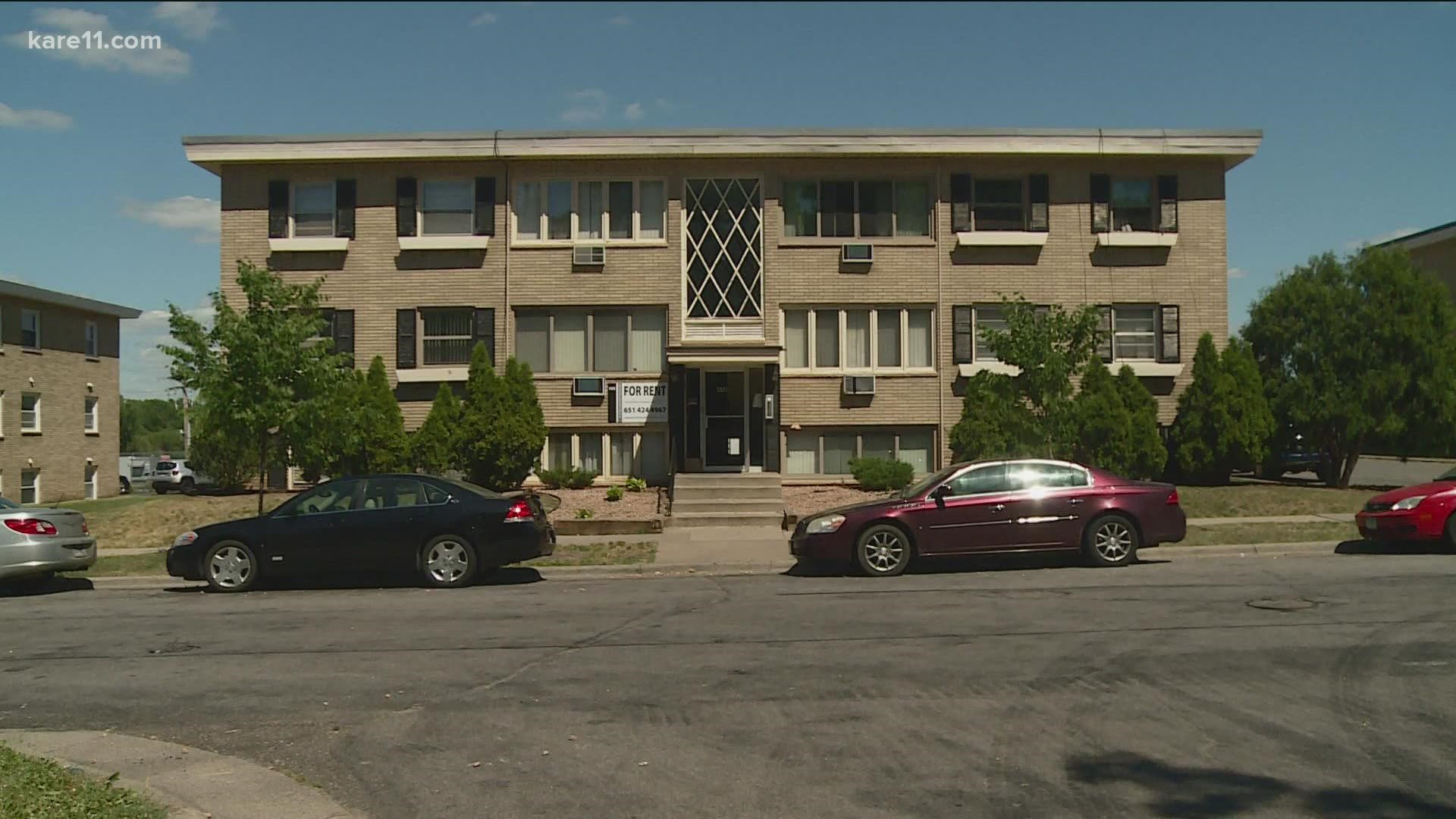ST PAUL, Minn. — Supporters of rent control say it's simply a matter of striking a balance between what tenants need to keep a roof over their heads and what landlords need to cover their costs. They assert renters need the same financial stability and predictability that landlords rely on when they borrow the money to build or buy rental housing.
Opponents argue that regulating private rents will backfire because owners won't have the revenue they need to invest in maintaining existing affordable housing. They say in other cities that enact rent control measures developers steer new projects to cities that won't restrict how much they can charge.
Those are the basic arguments playing out across the Twin Cities this fall as voters in both St. Paul and Minneapolis are deciding rent control ballot questions in their citywide elections.
In St. Paul, a "yes" vote on Ballot Question 1 would cap rent hikes at 3% per year, even on occupancy changes, beginning May 1. Landlords would be allowed to request exceptions based on the right to a reasonable return on investment.
In Minneapolis, a "yes" vote on Ballot Question 3 would grant the city council the power to regulate rents in the future. If the question passes the Minneapolis City Council would have two options; pass a city rent control ordinance or place the issue on the ballot in a future city election.
Minneapolis Mayor Jacob Frey has opposed rent control in the past, especially if created through a public referendum. But, he points to record levels of investment in affordable housing during his tenure -- $100 million spread across four city budgets, and a $40 increase in the Affordable Housing Trust Fund. That fund provides gap funding to new buildings and to preserve existing units.
St. Paul Mayor Melvin Carter this week came out in support of the capitol city's rent control question. He conceded it's not perfect, but called it a good start in the direction of improving housing equity at a time when rents are increasing faster than family incomes.
Both mayors are up for reelection in this year's city elections.
Leaders of Housing Equity Now St. Paul, the coalition that raised signatures to put the question on the ballot, say it's not simply a matter or landlords versus tenants. In a press conference Wednesday, some landlords of smaller properties said they think a 3% annual cap is reasonable.
Kathryn Schneider, who with her husband owns a duplex and a fourplex in St. Paul, said she can live with rental caps.
"The flyers I've been getting in the mail say that small 'mom and pop' landlords like me will go out of business is this passes. Well, they haven't spoken to me," Schneider remarked.
"We take pride in our buildings and feel it is a privilege to be able to provide housing. My husband and I charge below-market rents, but we still keep the buildings well maintained."
Eric Foster, who owns a restaurant and rental property on St. Paul's East Side, told reporters that the 3% cap is a reasonable protection against large spikes in rent, and that it shouldn't change things for those who are invested in their neighborhoods.
Ben Helvick Anderson of Beacon Interfaith Housing Collaborative said that rental property developers go into new projects with a long-range plan in mind, assuming they'll have to absorb unexpected costs.
"When we start a new development we've put a lot of time into considering things like inflation and property taxes and creating a plan that extends well into the future," Anderson explained.
"What we don't do is create a plan that only works if we spike the rents once people move in."
Opponents to the rent control question -- landlords, business groups and construction trades -- have formed a coalition called the Sensible Housing Ballot Committee to actively campaign for a "no" vote in both cities. They're running ads under the banners of "Think Twice Minneapolis" and "Think Twice St. Paul" to warn voters of the downsides to controlling rent.
"They're failed policies. They're proven as failed policies, and what St. Paul is considering is one of the most draconian rent control ordinances we've ever seen," Cecil Smith, a Minneapolis landlord and director of Minnesota Multi Housing, said.
"The negative side effects of rent control are so numerous. There's the lack of new investment in housing. The lack of ongoing investment in existing housing. There's no incentive to do that."
Smith and fellow members of the coalition said the solution to a shortage of affordable housing isn't through restraining rents. He asserts landlords and renters would both benefit more by policies that promote the production of more rental units.
Election Day is Nov. 2, 2021. Early absentee balloting began Sept. 17.

